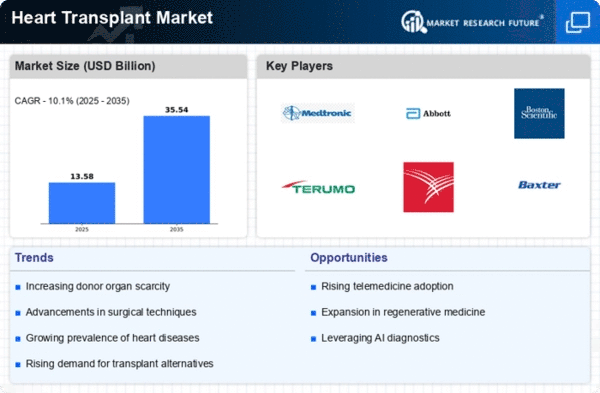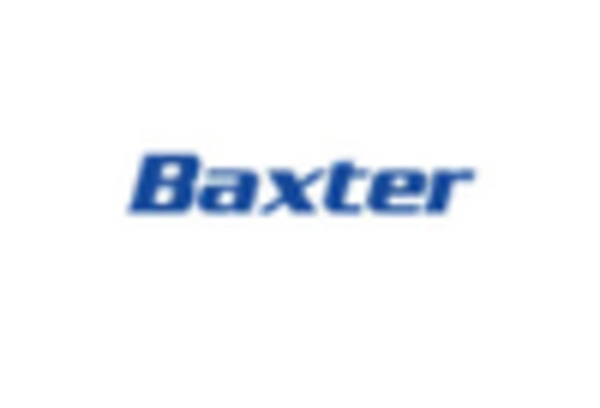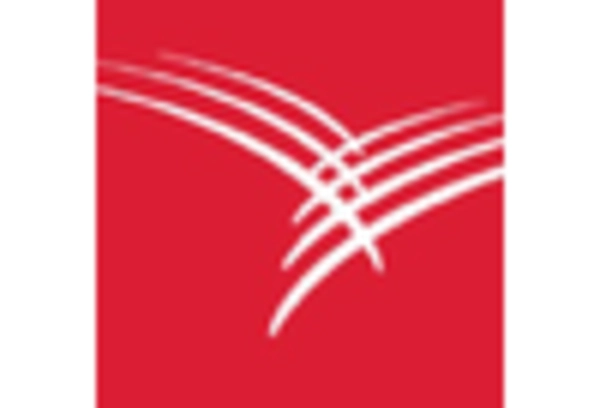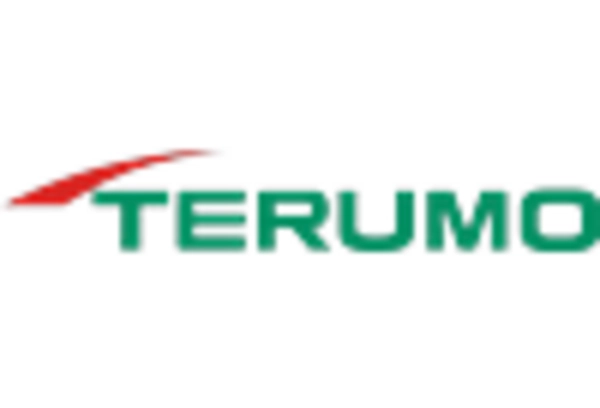Market Trends
Key Emerging Trends in the Heart Transplant Market
The Heart transplant market is witnessing a constant growth in demand, mainly because of the growing prevalence of cease-level heart sicknesses. As cardiovascular situations turn out to be extra general globally, the want for heart transplants as a lifestyle-saving intervention is on the upward thrust. Continuous improvements in transplantation technology are riding the Heart transplant market. Improved surgical strategies, organ maintenance strategies, and publish-transplant care contribute to higher patient results, lowering complications and enhancing the achievement fees of heart transplants. The popularity and integration of regenerative medication within the field of heart transplantation are emerging trends. Research and improvement in regenerative cures purpose to decorate organ viability, lessen rejection costs, and, in the long run, improve the long-term achievement of heart transplants. The development of progressive immunosuppressive treatments is a key trend within the Heart transplant market. These treatments intend to balance the suppression of the immune gadget to save you from rejection while minimizing facet effects, thereby enhancing the general first-class of life for transplant recipients. Collaborative efforts between public and personal entities are driving research and improvement in the Heart transplant market. Partnerships among instructional institutions, pharmaceutical groups, and healthcare companies are fostering innovation, leading to the invention of new capsules and remedy techniques for transplant recipients. Regulatory reforms and coverage modifications related to organ transplantation are impacting the Heart transplant market. Governments and fitness businesses are operating to streamline organ allocation strategies, improve transplant infrastructure, and deal with moral issues, contributing to more prepared and efficient transplantation surroundings. The trend of medical tourism for heart transplants is gaining traction. Patients are searching for transplantation offerings in international locations known for their understanding and superior medical facilities, contributing to the globalization of the heart transplant market. Despite high-quality developments, challenges related to the fee and accessibility of heart transplants persist. Efforts are ongoing to cope with these challenges through medical insurance reforms, monetary assistance programs, and consciousness campaigns to make sure that life-saving heart transplant processes are reachable to a broader population.


















Leave a Comment